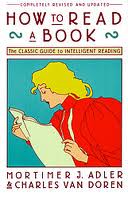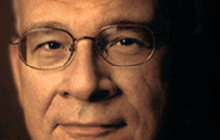In this chapter we come back to where we started. Your mind goes through three acts every time it does anything related to learning. To review, those three acts are:
A. Coming to terms
B. Making judgments
C. Connecting the dots
We have seen how to build a solid foundation for these acts through reading, writing, thinking and meditating. We then explored how to train the mind, how to maintain the mind through caring for the body’s physical needs, and how to lead the mind to optimum capacity with creative use. But what is the end goal for all this work? Why do we need a sharp mind? Obviously a strong mind is a great gift in many aspects of life. One of the most powerful uses for our minds is to discover truth. The main way we accomplish that is by asking questions. Especially in a learning setting such as college, the use of questions is paramount to using your mind well. Learning to ask great questions is the focus of this chapter.
Why are questions so powerful? The quick answer is they make you think. A good question starts your mind down the path of all three basic acts. In fact, truly great questions all come from one of the three acts. The following chart outlines this for you. Look at each category, and then consider how these generic questions could be applied to specific areas of study and courses you are taking. The use of these kinds of questions is at the heart of good, clear, strong thought.
| Category (Act of the Mind) | Generic Question |
| Coming to Terms | “What do you mean by that?”“Can you define your term, _____?”
“By ____ do you mean ___ or ____?” “How is ____ like ____?”
|
| Making Judgments | “How do you know that?”“What authorities agree with you?”
“What is the opposing view to yours?” “What are two or three sources I could go to understand ____?”
|
| Connecting the Dots | What are your assumptions?What are the implications if you are right?
What if you are wrong? Are you willing to consider any other options? How does this change the way you or I should live?
|
Using questions in this way causes you, and anyone you are learning with, to consider all the options. It usually results in several “rabbit trails” of learning that lead to even more questions. In many regards the asking of questions never ends.
Loving Learning
The questioning mind can often simply be called the mind that loves to learn. The difference between a lover of learning and someone who learns only to gain some resource or monetary goal is huge. The lover of learning is seeking to free his mind of ignorance. He is seeking to become a truly free man. That is why the study of things like reading and writing is called the “Liberal Arts.” Those who gain the skills of thinking are free men in truth. The one who only learns out of compulsion, because he has to “pass the class” to get something else he wants, is really using his learning in order to serve some other purpose. He is not free; he is bound to whatever is causing him to study.
The following quotes are what just a few people have famously said about this love of learning:
“Live as if you were to die tomorrow. Learn as if you were to live forever.” ― Mahatma Gandhi
“The love of learning, the sequestered nooks, / And all the sweet serenity of books” ― Henry Wadsworth Longfellow
“It is not that I’m so smart. But I stay with the questions much longer.” ― Albert Einstein
“Study the past if you would define the future.” ― Confucius
“If we let ourselves, we shall always be waiting for some distraction or other to end before we can really get down to our work. The only people who achieve much are those who want knowledge so badly that they seek it while the conditions are still unfavorable. Favorable conditions never come.” ― C.S. Lewis
“A little learning is a dangerous thing. / Drink deep, or taste not the Pierian Spring; / There shallow draughts intoxicate the brain, / and drinking largely sobers us again.” ― Alexander Pope, An Essay on Criticism
“The best thing for being sad,” replied Merlin, beginning to puff and blow, “is to learn something. That’s the only thing that never fails. You may grow old and trembling in your anatomies, you may lie awake at night listening to the disorder of your veins, you may miss your only love, you may see the world about you devastated by evil lunatics, or know your honour trampled in the sewers of baser minds. There is only one thing for it then — to learn. Learn why the world wags and what wags it. That is the only thing which the mind can never exhaust, never alienate, never be tortured by, never fear or distrust, and never dream of regretting. Learning is the only thing for you. Look what a lot of things there are to learn.” ― T.H. White, The Once and Future King
For this course experience, it is enough to state that the best use of a great mind is to love learning itself. Don’t view your learning as a means to an end, but rather continue to seek satisfaction by finding the truth of life.
The Contemplative Life
Those who truly love learning find that their whole purpose in life transforms from merely “staying alive” to that of “living to learn.” The life lived in contemplation of the great questions is a life available to anyone who will choose it. What path will you choose with your mind?
One great writer on the contemplative life spelled out what this course has been saying in the following way:
“Leisure, it must be clearly understood, is a mental and spiritual attitude – it is not simply the result of external factors, it is not the inevitable result of spare time, a holiday, a week-end or a vacation. It is, in the first place, an attitude of mind, a condition of the soul, and as such utterly contrary to the ideal of ‘worker’ in each and every one of the three aspects under which it was analyzed: work as activity, as toil, as a social function.
“Compared with the exclusive ideal of work as activity, leisure implies (in the first place) an attitude of non-activity, of inward calm, of silence; it means not being ‘busy,’ but letting things happen.
“Leisure is a form of silence, of that silence which is the prerequisite of the apprehension of reality: only the silent hear and those who do not remain silent do not hear. Silence, as it is used in this context, does not mean ‘dumbness’ or ‘noiselessness’; it means more nearly that the soul’s power to ‘answer’ to the reality of the world is left undisturbed. For leisure is a receptive attitude of mind, a contemplative attitude, and it is not only the occasion but also the capacity for steeping oneself in the whole of creation.” – Josef Pieper, Leisure, The Basis of Culture, pp. 26-27













